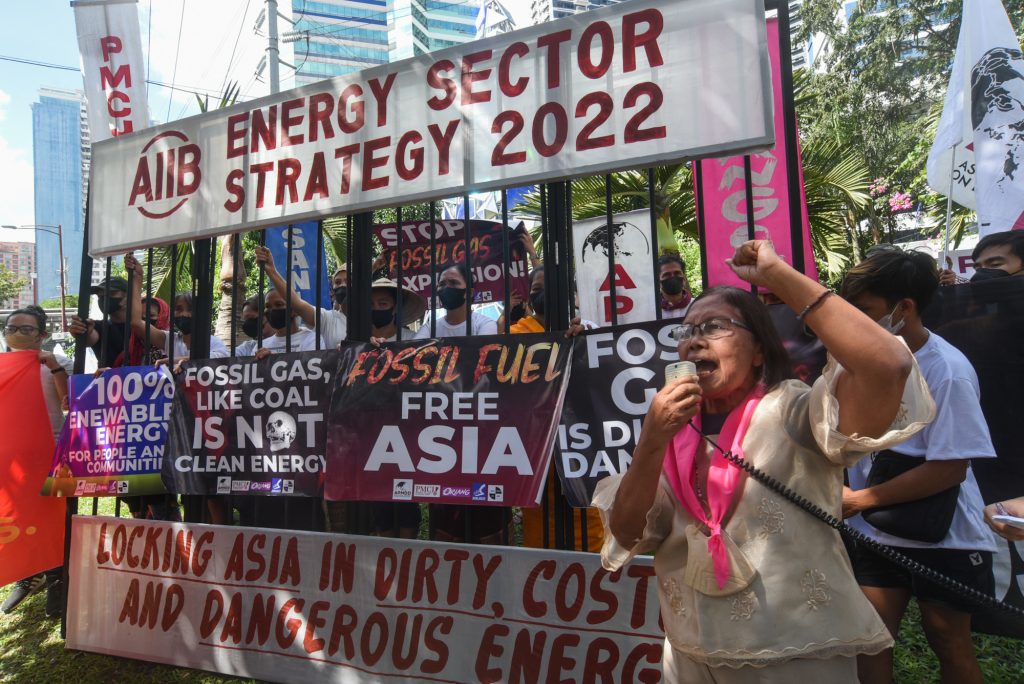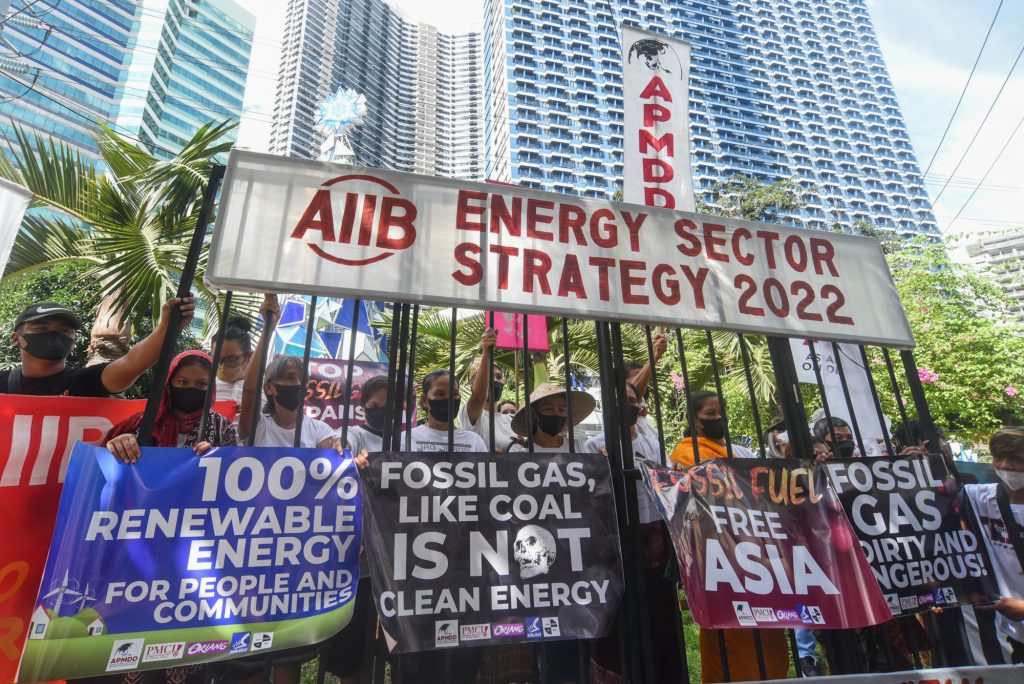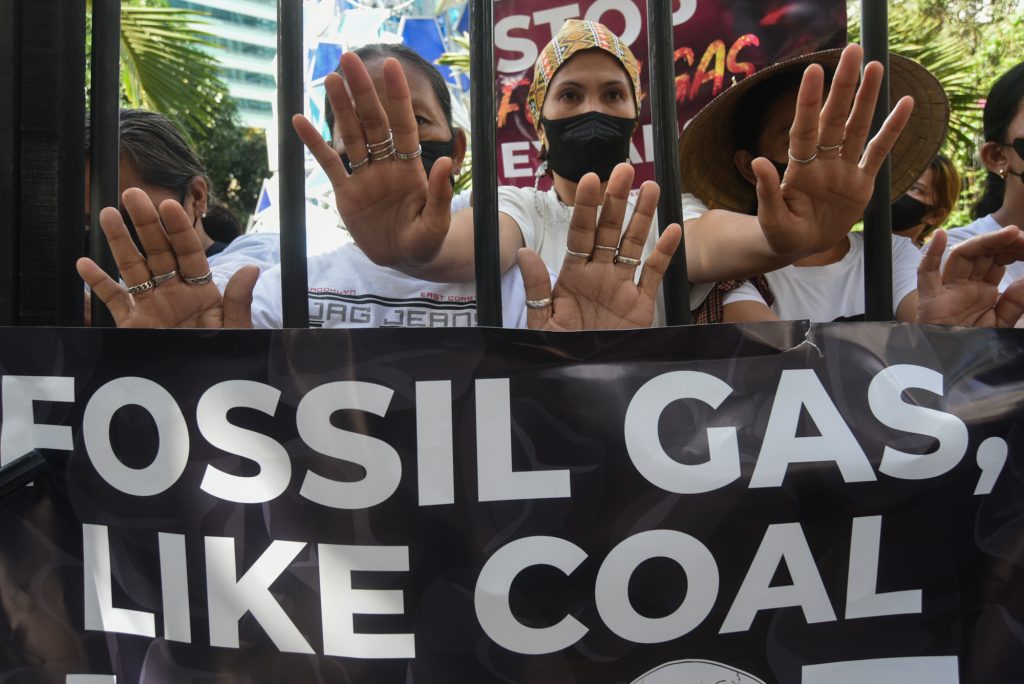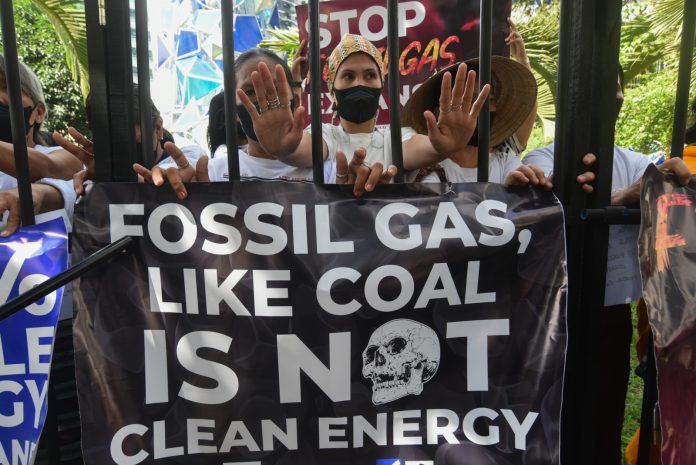Climate campaigners in the Philippines staged a demonstration on Thursday, December 15, against the Asian Infrastructure Investment Bank’s (AIIB) support for gas projects despite a new energy policy that focuses on “Sustainable Energy for Tomorrow.”
AIIB recently published its Energy Sector Strategy Update, the latest energy policy since 2017.
“AIIB’s new energy policy professes to facilitate member countries’ transition to a low- or zero- carbon energy system, but retains support for gas projects, which have climate-wrecking emissions,” said Lidy Nacpil, coordinator of the Asian Peoples’ Movement on Debt and Development (APMDD).
Nacpil said the bank is “neither aligning its new financing operations with the goals of the Paris Agreement nor pushing for green development as a so-called alternative multilateral bank.”
“The new policy also contains provisions that support false solutions to the climate crisis, which include carbon capture, utilization and storage, waste-to-energy, hydrogen, ammonia and biofuels,” added Nacpil.
She said “false solutions further delay the urgently needed transition to renewable energy systems.”
“We are urging China, as AIIB president and its largest shareholder, to lead in ensuring that the AIIB moves away from fossil fuel financing and instead give full support for the rapid, equitable, and just transition to 100 percent renewable energy systems,” Nacpil said in a statement.
China is a major global producer and exporter of renewable energy, and committed US$6.4 billion through the Global Development Initiative in partnership with AIIB to support low carbon development in developing countries.

“China can lead the AIIB in the swift development of renewable energy for people and communities,” said Nacpil.
AIIB’s new energy policy treats natural gas as a transition fuel in the context of its commitments to phase down coal. The policy states that “AIIB will focus its funding for natural gas investments on transitional projects linked to Members’ energy and climate objectives and decarbonization trajectories.”
The bank commits to support gas midstream infrastructure (LNG terminals, storage, and transmission pipelines), natural gas-fired power generation, and downstream (distribution and end-use) facilities if these will not conflict with the member country’s carbon neutrality pledges, create a risk for carbon lock-in or stranded asset and other conditions.
Ian Rivera, national coordinator of Philippine Movement for Climate Justice (PMCJ), however, said increasing fossil gas use “is not the answer to energy security in the face of coal phase out.”
“It is a lie perpetrated by fossil fuel financiers who want to prolong the life of fossil fuel power plants, instead of considering renewable energy projects,” he said.

Rivera said fossil gas is not a transition fuel. “Scientists have long been sounding the alarm on fossil gas as a dirty fuel that is now emerging as one of the biggest drivers of climate change. It cannot have a transitional role in the energy systems of developing countries because it is not a cleaner alternative,” he said.
AIIB has come under fire recently after it announced it is fast-tracking a bid to back a 584 MW gas-fired power plant in Bangladesh, stating that the project is in line with the Paris Agreement.
The International Energy Agency (IEA) warned last year that investment in new coal, oil and gas production was incompatible with the Paris Agreement goal of limiting global warming to below 1.5C, the safest level possible to to stave off severe global warming that could lead to catastrophic floods and droughts and exacerbate hunger and conflict worldwide. According to the latest data, however, the world is on track for a temperature rise of between 2.4C and 2.6C by the end of this century.
A Climate Analytics report using global 1.5°C compatible pathways found that a rapid phase-out of fossil gas from the power sector is becoming both more urgent, due to rising emissions, and more feasible, due to the falling costs of renewables and storage.










